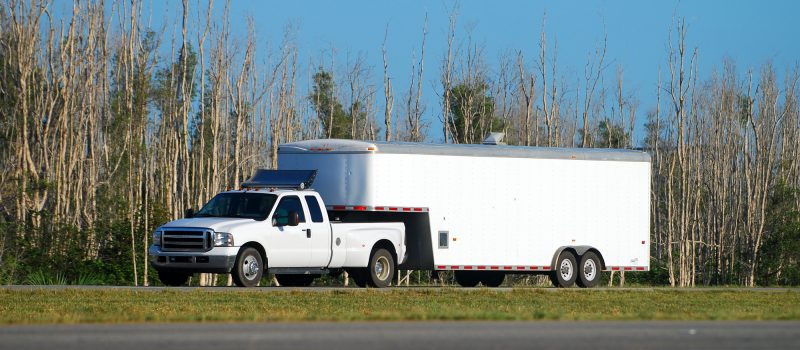So, you’re in the market for a utility trailer. That means you’ve got some decisions to make, and lots of options to compare and consider.
Things like the trailer’s width, capacity, and height should all be taken into consideration. Your needs will also depend on what you plan to tow.
Whether you’re hauling furniture, loads of mulch, or your newest adventure toy, you need a trailer. But how do you choose the best one when there are so many types and sizes to choose from?
We’ve got you covered. Choosing the best utility trailer for your specific needs can be tricky, so here’s our guide for how to do it.
What’s Your Purpose?
The first thing you should ask yourself if, why do you need a trailer? What’s your purpose in getting one? This single question will drive most, if not all, of your decisions.
Do you only need the trailer for light hauling? Or will you use it for heavier work?
Maybe you’ve purchased a new boat and need a way to move it. If that’s the case, your needs will be very different than someone who just wants to move some furniture.
If you’ll be hauling tools or machines, make sure you define what that means. Tools can mean anything from hammers to large air compressors, so the details are important here.
While you’re considering what you’ll be towing, don’t forget to calculate the Gross Vehicle Weight Rating (GVWR) of what you’ll be towing. The GVWR is the total of the weight of your trailer and what you’ll be carrying on it.
You’ll need this number to make sure you get a trailer that meets your needs.
Secondary Purposes
Now that you’ve pinned down your purposes, take a minute to consider any secondary purposes for the trailer.
What else might you use the trailer for? What are your spouse’s needs? Are you likely to help neighbors when they need it?
If it’s likely you’ll be using your trailer for things other than your main purposes, take those into consideration too.
Consider Your Comfort Level
When selecting a trailer for hauling, take your comfort level into consideration. Are you used to pulling a trailer? If so, what are you comfortable with?
If you haven’t pulled a trailer before, what are you willing to work with? An eight-foot trailer can feel very different than a twenty-foot trailer, so make sure you’re willing to work with what you purchase.
Design Aspects
There are many aspects to a trailer’s design and you’ll need to decide what’s important to you.
Bed height (how you’ll get things on and off), tops, sides, ramps, and hitch point height should all be considered.
Maybe you’d like a dump trailer or car hauler. If so, North Carolina Trailer Sales is a great place to look.
How Will It Be Towed?
Before purchasing a trailer, consider how it will be towed. Your family car can likely pull a light duty trailer, but it won’t be able to pull one made for heavier work.
As you consider what vehicle will do the towing, think about how fast and far you’ll usually need your trailer to go.
The terrain and surrounding the trailer is likely to be in are important to consider too. Will there often be high winds? Will you haul the trailer up steep inclines often?
Use your answers to help you choose, based on the towing vehicle, as well as the trailer itself.
Towing Power
The power of your towing vehicle is a major thing to consider when choosing a trailer. You don’t want to buy a trailer that’s too much for your vehicle.
Calculate the max load that your vehicle can pull, then subtract the trailer’s weight. The number left will tell you how much you can pull with that specific vehicle and trailer.
As you match your needs to your vehicle and trailer of choice, also consider stopping power. Choosing a trailer that’s too heavy can impede your ability to stop.
Other Supplies to Consider
When buying a trailer there’s a chance you may need to purchase some other supplies. Think of anything you may need to accompany your new trailer setup.
Do you have a hitch already on your vehicle? If not, you’ll need to get one. Spare tires, a tire carrier, and a utility rack may also be needed.
You’ll also need to make sure you have the right lighting accessories and wiring.
Coupler Size
Before making your purchase, make sure you’ve got the right coupler/ball setup. These need to be the right sizes or they won’t work properly.
Make sure the coupler and ball are the same size. If you have a 2-inch coupler you’ll need a 2-inch ball.
Trailer Storage
Where do you plan to store your trailer? This is an important thing to consider before making a purchase.
If you plan to store it outside, make sure your neighborhood rules allow for that. You’ll also want to take the trailer’s finish into consideration as you make your decision.
Make sure you only purchase a trailer that you have room for. Before spending a considerable amount of money on a trailer, make sure you can protect it.
The Best Utility Trailer for You
Ultimately, you’re the only one who can decide which utility trailer is best for you. Assess your needs and desires, then prioritize.
What comes out on top? That’s what you should focus on when choosing the best utility trailer.
Keeping these tips in mind will set you on your way to choosing a trailer that’s a great fit for you.
If you have questions, comments, or suggestions relating to this article, head to our website to contact us today.

